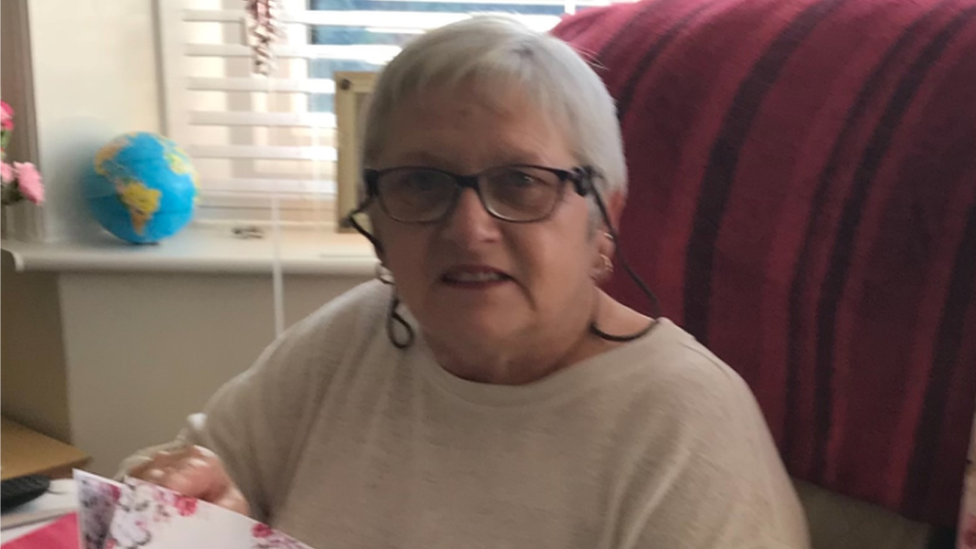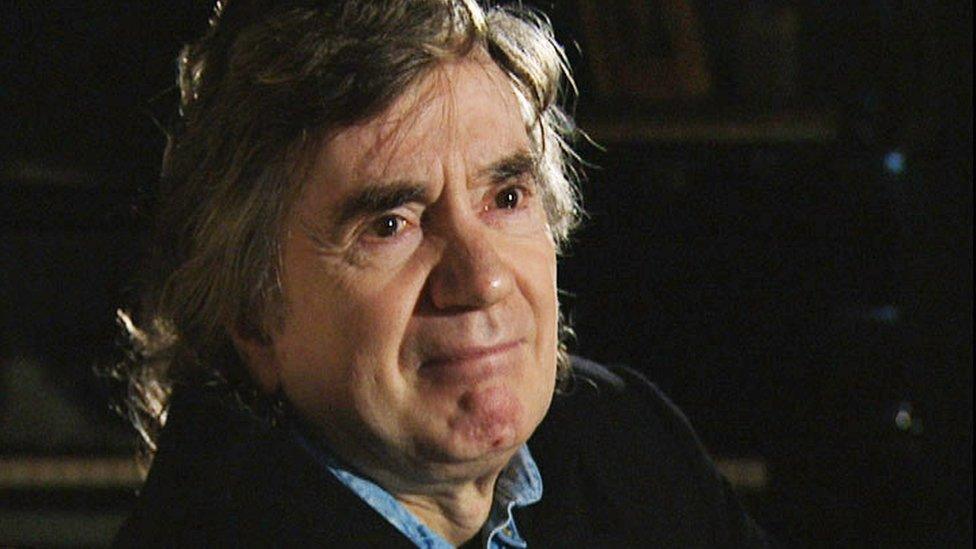Southampton woman trials UK treatment for rare brain disease
- Published

Maggie Walsh recognised the symptoms of PSP from her own father
A woman has become the first person in the UK to receive a new treatment for a rare, incurable neurological disease.
Maggie Walsh, 65, received injections at University Hospital Southampton for Progressive Supranuclear Palsy (PSP), which causes falls and gradual loss of mobility.
The hospital said the treatment was not a cure but could be a "game-changer" for patients.
Previous sufferers of PSP have included the actor and comedian Dudley Moore.
Ms Walsh, from Southampton, was diagnosed in 2018 after recognising the symptoms from her own father who died with PSP, even though the condition is not genetic.
Her husband Bob, 67, said: "It's a very debilitating condition and I have watched Maggie deteriorate over time.
"She regularly suffers falls, can speak very quietly and now struggles to look down."

The actor and comedian Dudley Moore died with PSP in 2002
Some 3,000 people in the UK have PSP and can expect to live about six years after diagnosis.
The condition is driven by changes to the tau protein which damages the brain stem.
University Hospital Southampton (UHS) said the injections, aimed at disrupting the protein changes, could prove to be the "first treatment targeting the root cause of the condition which could slow its effects".
Consultant neurologist Dr Boyd Ghosh, leading the study, said: "As of now there's no cure. These patients are facing relentless progression of their disease.
"This new treatment has the potential to give them back more of their life, and more time with their families and friends."
A further three patients are set to receive the injections in Southampton over the next few months.
UHS said it may also be tested in future on patients with other neurological conditions including Alzheimer's disease.
Other well-known sufferers of PSP have included the singer-songwriter Peter Sarstedt and actress Phyllis Frelich.
In 2009, the BBC drama "A Short Stay in Switzerland" portrayed the story of PSP patient Dr Anne Turner, who made headline news when she flew to the country to end her life.

Follow BBC South on Facebook, external, Twitter, external, or Instagram, external. Send your story ideas to south.newsonline@bbc.co.uk, external.